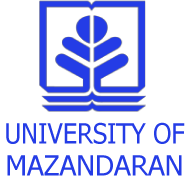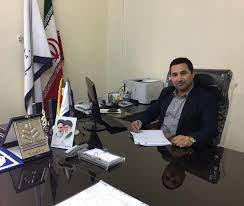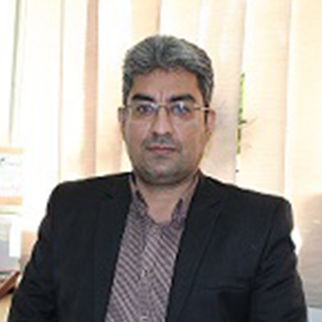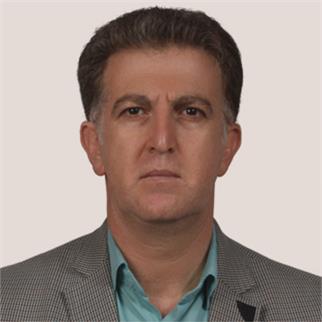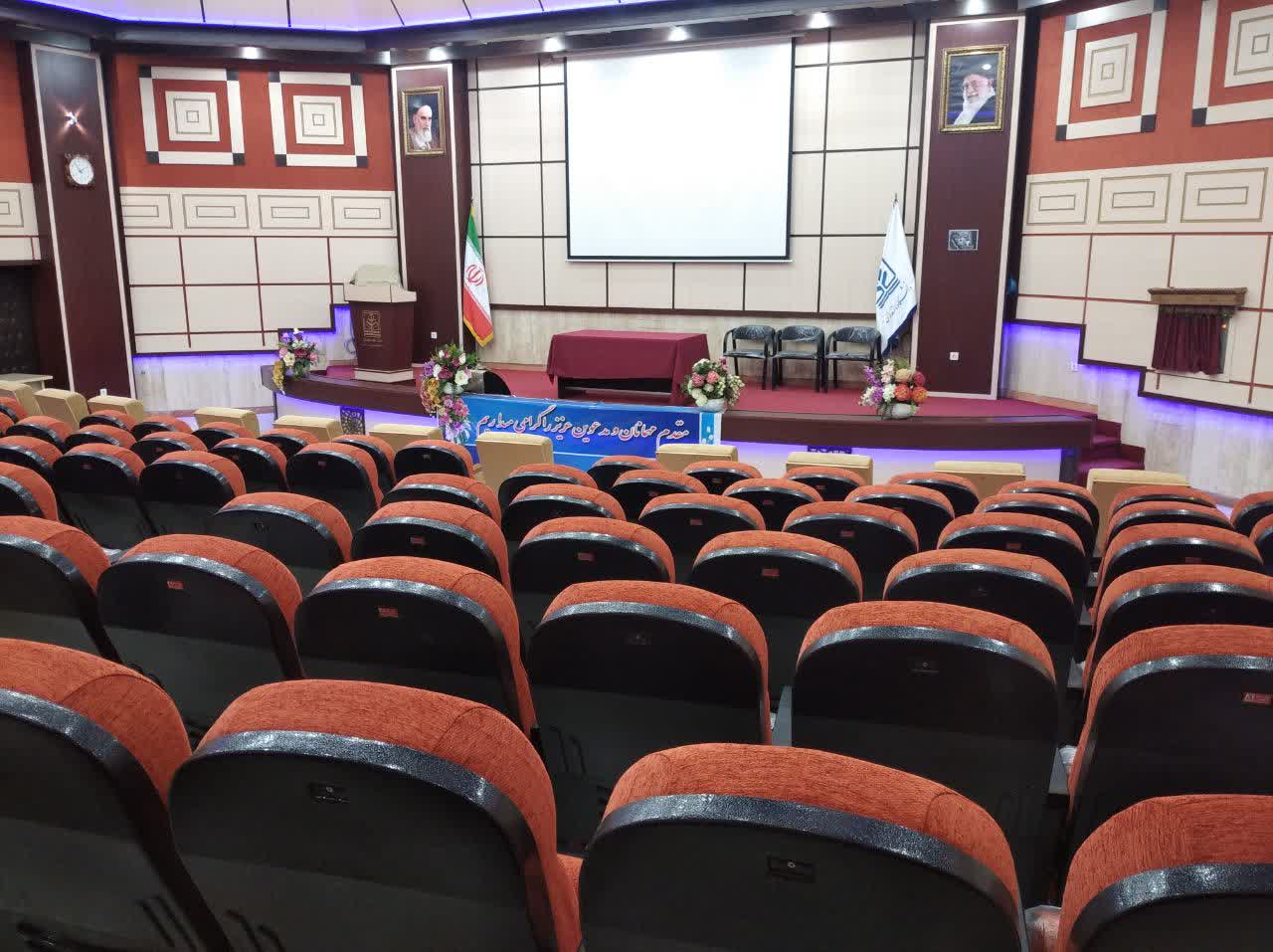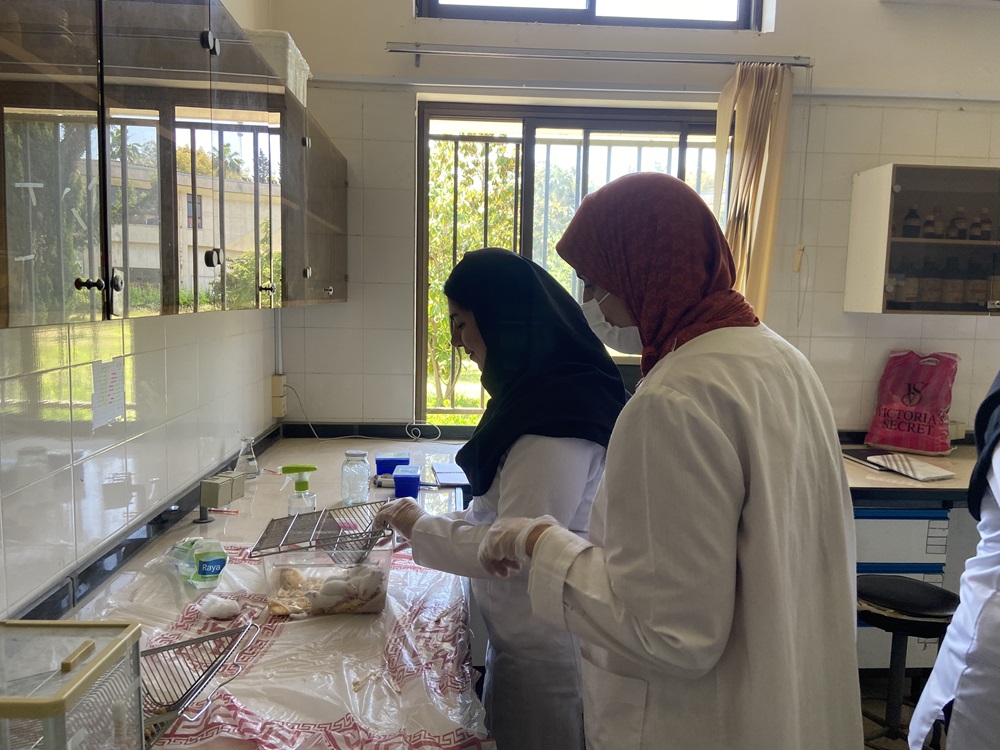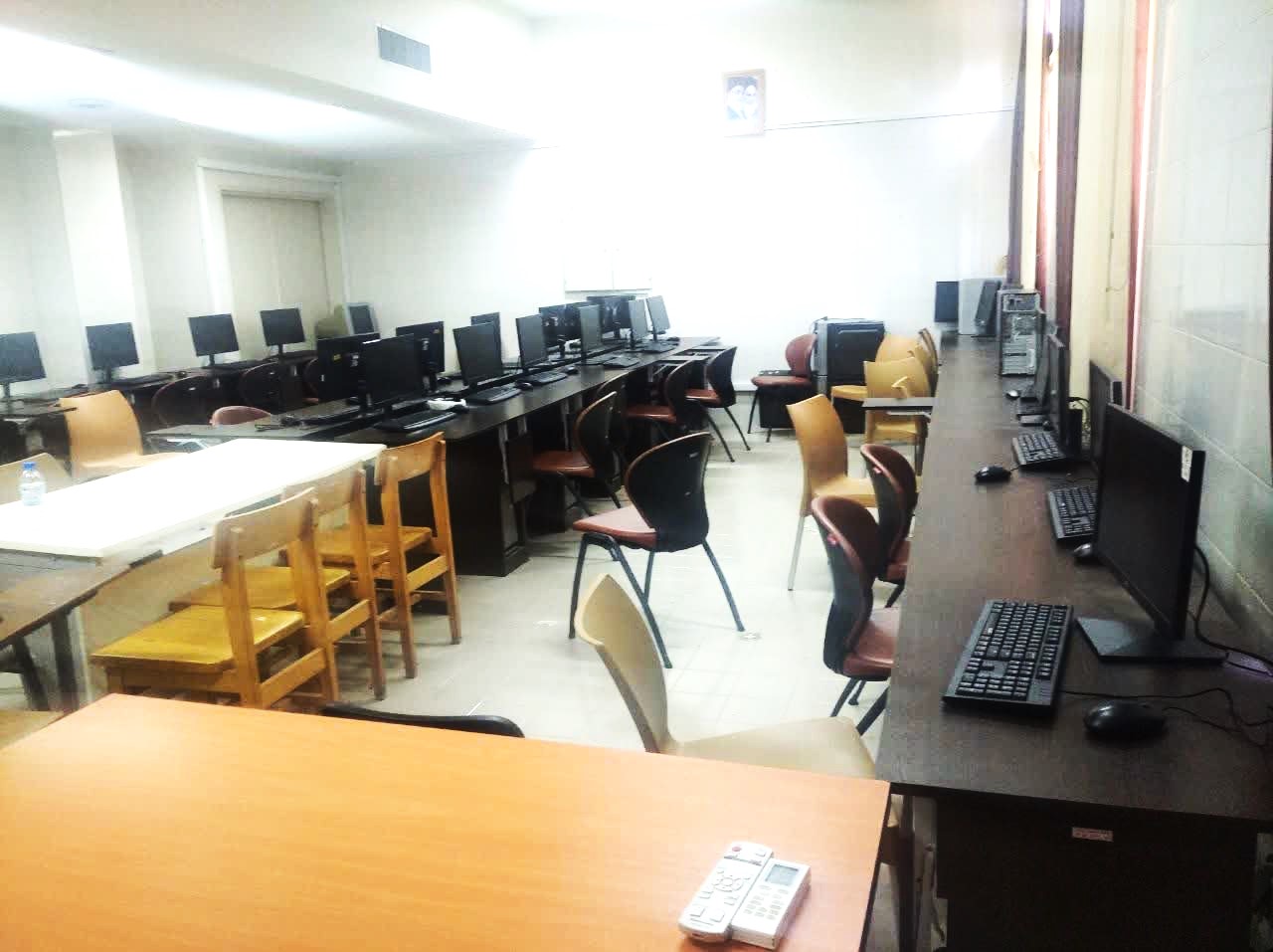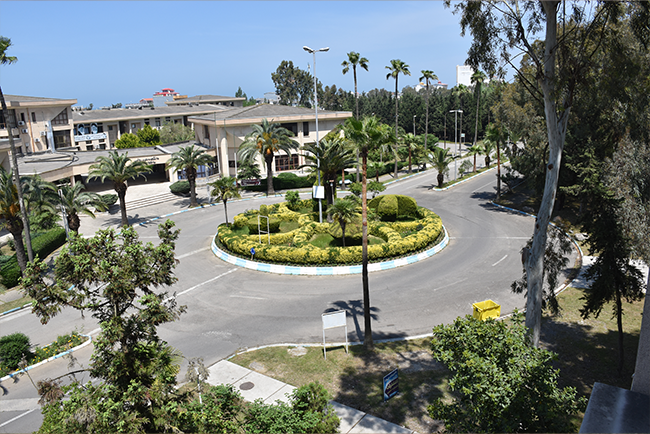Science - Foreign
About us
The plan of this educational unit under the title of Postgraduate Education University was approved in 1974in order to train human resources at the master's and doctorate level with four institutes of chemistry, mathematics, physics and social sciences in an area of 800 hectares in Ahlam and Shirkala Noor lands. Since the construction operations of educational, administrative, educational aid, welfare, etc. units were taking a long time, it was decided that the university activities will be started temporarily in the outskirts of Babolsar city (the current location of the Faculty of Basic Sciences). In 1977, with the construction of temporary buildings in this place, its educational activities began by accepting students in the fields of chemistry and anthropology, which were subsequently added to the fields of mathematics and physics. After the victory of the Islamic Revolution and with the transformation of the higher education policies of the country, the previous plans were stopped and the plan of the Faculty of Basic Sciences was formed in its current location, and the current building of the Faculty of Basic Sciences was put into operation in 2000. In line with the new policies of Mazandaran University, in 2006, the Faculty of Chemistry and subsequently in the summer of 2010, the Faculty of Mathematical Sciences were separated from the Faculty of Basic Sciences. Currently, the Faculty of Basic Sciences is formed with six educational groups of nuclear physics, atomic and molecular physics, solid state physics, theoretical physics, biology, cellular and molecular biology, environmental sciences, and at different levels of bachelor's, master's and He continues to work as a doctor.
Introduction of Educational Groups
A paragraph is a self-contained unit of a discourse in writing dealing with
a particular point or idea. Paragraphs are usually an expected part of
formal writing, used to organize longer prose.
| Counter | section | field title | head of department | Head |
|---|---|---|---|---|
| 1 | Bachelor's degree
Masters degree |
Biology
Biology of animal sciences - animal physiology |
Dr Parisa Davoodi | +981135305232 |
The Department of Theoretical Physics of Mazandaran University started working in 2018. Before this date, each of the different trends of the theoretical physics group worked as one of the subgroups of other physics groups. The theoretical physics department mainly investigates and researches the basic topics of physics such as fundamental particles, gravity and cosmology, astronomy, astrophysics and mathematical physics. Among the research branches in this field are quantum gravity, black hole physics, inflationary cosmology, gravitational waves, generalized gravity, quantum field theory and string theory, interstellar environments, accretion disks and star formation. .. cited. The theoretical physics group includes three subgroups: fundamental particles and field theory, gravity and cosmology, and astronomy and astrophysics. This group operates in master's and doctorate courses, and so far a significant number of students have graduated from this group with doctorate degrees. Comprehensive research plans: Application of ADS/CFT in elementary particles and obtaining its parameters Microphysics of cosmic inflation and reheating
| Counter | section | field title | head of department | Contact |
|---|---|---|---|---|
| 1 | Bachelor's degree
Masters degree Masters degree Masters degree Ph.D Ph.D Ph.D |
Physics
Astronomy and astrophysics Cosmology Fundamental particles and field theory Gravity and cosmology Fundamental particles and field theory Astronomy and astrophysics |
Dr Tahereh Azizi |
+981135305185 |
The applied mathematics department of the Faculty of Mathematical Sciences is operating with one major in the bachelor's degree, four majors in the master's degree, and two majors in the doctoral degree.
| Counter | section | field title | head of department | Contact |
|---|---|---|---|---|
| 1 | Bachelor's degree
Masters degree Masters degree Masters degree |
Microbiology
Environmental microbiology Microbiology - industry Microbiology - Pathogenic microbes |
Dr Salman Ahmadi Asbchin |
+981135302401 |
Bachelor's degree in physics has three majors: atomic and molecular physics, solid state physics, and nuclear physics. The general goal of this course is to train experts specializing in physics as well as to train committed teachers to teach physics in the general secondary education course of the Ministry of Education. The difference between these three physics orientations in the undergraduate course is only in 9 units of orientation courses, which must be taken and passed out of 17 units of orientation courses. Currently, basic physics laboratories 1, 2 and 3, optics, new physics, solid state, electronics 1 and 2, are operating in the undergraduate course, and the establishment of a laser laboratory is on the agenda. Also, the Department of Physics has been training researchers and specialists in this field since 2009 by accepting master's students and since 2004 by accepting doctoral students. But in graduate education courses, in addition to the three trends mentioned above, trends in fundamental particles, astrophysics, cosmology and gravity are also currently offered. Of course, launching other trends such as photonics, nanophysics and plasma engineering is also on the agenda. Due to the expansion of the physics department in postgraduate courses, from November 2019, the physics department was divided into three groups based on the trends of the undergraduate course. Other trends were included in one of these three groups according to their closeness or the interest of colleagues. The astrophysics trend was placed in the atomic and molecular physics group due to the scientific activity of colleagues in the field of interstellar plasma. The first master's students in atomic and molecular physics and astrophysics were graduated in 2012 and the first PhD students in 2012. At present, the Department of Atomic and Molecular Physics, considering the ability of its faculty members and laboratory equipment, in addition to undergraduate courses, is also active in master's and doctoral degrees and is developing other trends.
| Counter | Section | Field Title | Head of Department | Head |
|---|---|---|---|---|
| 1 | Bachelor's degree
Masters degree Masters degree Masters degree Masters degree Ph.D Ph.D |
Physics
Photonics Plasma physics Optics and lasers Plasma technology Plasma physics Optics and lasers |
Dr Amin Ghadi |
+981135305181 |
The nuclear physics department of Mazandaran University is one of the three physics sub-departments that was separated from the physics department in 1390. This group is currently accepting students in the field of nuclear physics in the undergraduate course and nuclear physics and elementary particles in the master's and doctoral courses. Creation of nuclear physics undergraduate course in 1380 and the first nuclear physics and elementary particle physics master's students were accepted in this group in 1382. The first nuclear physics doctoral course started with the admission of one student and elementary particles with two students in 2014. This group has an independent building called the nuclear physics laboratory complex, which is the first undergraduate nuclear physics laboratory, and our hardworking colleagues in this complex are working with determination to set up the radioisotope laboratory and nuclear laboratories. Advanced I and II are masters. Also, four research laboratories named Neutron Activation Research Laboratory, Nuclear Electronics Research Laboratory, Nuclear Spectroscopy Research Laboratory and Dosimetry Research Laboratory are being formed. Colleagues of the Department of Nuclear Physics and Fundamental Particles pursue various research fields, including nuclear fusion, nuclear fission, nuclear force heavy ions and ADS/CFT isometric symmetry, string theory and quantum gravity, and have published fruitful research articles in journals. and have published prestigious domestic and international scientific conferences. This group is now ready to accept and nurture graduate students (doctoral and post-doctoral) from foreign countries.
| Counter | Section | Filed Titel | Head of Department | Phon Number |
|---|---|---|---|---|
| 1 | Bachelor's degree
Bachelor's degree Bachelor's degree Masters degree Ph.D |
Physics
Nuclear Physics Engineering physics Nuclear physics Nuclear physics |
Dr. Mohammad Mahdavi | +981135302491 |
Biology department of Mazandaran University was established in 2009 by accepting the biology course - plant sciences, then in October 2015, it accepted the second bachelor's degree, the field of cellular and molecular biology - cellular and molecular sciences biology. After the formation of cellular and molecular biology in 2000, the Master's courses in cellular and molecular biology in October 2001; Master's course in biochemistry in October 2013; And started the doctoral course in cell and molecular biology in February of 2011. This group is now in the biological sciences complex of Mazandaran University, along with three microbiology groups (in the fields of environmental microbiology, industrial microbiology, virology, genetics and biophysics); Biology of Animal Sciences (in various fields of Animal Physiology, Animal Evolution, Animal Systematics) and Biology Department of Plant Sciences (in the fields of Plant Physiology, Plant Systematics, and Plant Ecology) are established and active. One of the important goals of the group is to establish a relationship with other scientific centers and to attract internal and external credits, to provide a suitable foundation in terms of laboratory equipment and facilities, to attract young and motivated researchers to a part of the country's concerns in basic research and application and production of science to respond and in the near future become an educational and research pole in the biology of cellular and molecular sciences of the country.
| Counter | Section | Filed Titel | Head of Department | Phon Number |
|---|---|---|---|---|
| 1 | Bachelor's degree
Masters degree Masters degree Ph.D |
Cellular and Molecular Biology
Cellular and Molecular Biology Cellular and Molecular Biology-Biochemistry Cellular and Molecular Biology |
Dr. Bagher Syed Alipour | +981135302405 |
The solid state physics department of Mazandaran University is one of the three physics sub-departments that was separated from the physics department in 2013. This group is currently accepting students in solid state physics in the undergraduate course and solid state physics and gravity in the master's and doctoral courses. The first master's students in solid state physics and gravity physics were accepted in this group in 2008 and the first doctoral students in 2009. Currently, undergraduate, master's and doctoral students (gravity and solid state) are working in the solid state physics department. This group has four solid state physics research laboratories (nanotechnology laboratory, nanoelectronics laboratory, molecular electronics laboratory and XRD laboratory) that work in the field of nanostructured materials, carbon nanotubes and nanocomposites. The Department of Solid State Physics is now ready to accept and train graduate students (PhD) from foreign countries.
| Counter | Section | Filed Titel | Head of Department | Phon Number |
|---|---|---|---|---|
| 1 | Bachelor's degree
Masters degree Masters degree Ph.D |
Physics
Condensed matter physics Nano physics Condensed matter physics |
Dr. Mohammad Pouranuri | +981135305194 |
